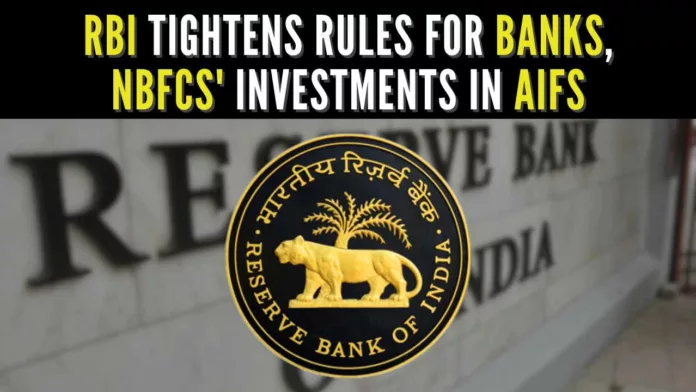
RBI shares guidelines on AIFs investments for lenders
On Tuesday, the Reserve Bank of India (RBI) barred regulated entities (REs) such as banks and non-banking finance companies (NBFCs), from investing in any scheme of alternative investment funds (AIFs) which has downstream investments either directly or indirectly in the debtor company of the RE.
The debtor company of the RE, for this purpose, shall mean any company to which the RE currently has or previously had a loan or investment exposure anytime during the preceding 12 months, the RBI notification stated.
The tighter rules, which come into immediate effect, have been issued due to concerns over instances where AIFs mask bad loans in the financial system. The RBI pointed out that certain transactions of REs involving AIFs raise regulatory concerns over possible “evergreening through this route”.
RBI said that lenders would need to liquidate their investments in AIFs within 30 days should the fund invest in an existing borrower.
If the regulated entity is unable to do so, they will be required to make 100 percent provisions on these investments, the RBI added.
In instances where a regulated entity has invested in subordinate units of a fund that follows a ‘priority distribution’ model, the investment shall be subject to full deduction from the entity’s capital.
[With Inputs from IANS]
For all the latest updates, download PGurus App.
- Indian Navy assists Panama-flagged crude oil tanker after it comes under Houthi’s missile attack; crew including 22 Indians safe - April 29, 2024
- Delhi Police registers case after doctored video of Amit Shah circulated on social media - April 29, 2024
- PM Modi to address six poll rallies in Maharashtra on April 29-30 - April 29, 2024










